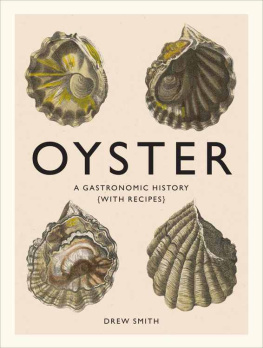
Praise for Domesticity
Take M. F. K. Fishers sublimely sensual writings on food, add a liberal dose of testosterone and a dollop of twisted humor, and youve got a good idea of the quirky style of Bob Shacochiss delicious Domesticity. It is more than just the record of a passionate cooks culinary adventures. Mr. Shacochis uses food as a medium to investigate all sorts of human appetites, inventions and connections. He ponders the history of breakfast, the social significance of ice cream, the relative value of table manners and the pleasures of the dinner party. Domesticity nourishes the senses and the soul.
New York Times Book Review
By turns doting, curative, seductive. Its celebration of the cooks greatest needthe significant eaterrings sweetly true.
Washington Post
Shacochis follows his nose to investigate such gastronomic riddles as the nomenclature of pts and terrines and the aphrodisiac reputations of various foods. Shacochis is literate, tough, romantic and the master of his kitchen.
Publishers Weekly
Domesticity is about the voluptuous pleasures of cooking for, and eating with, someone you love, about making meals a participatory rather than spectator sport. It is about excess and obsession. Shacochis intends to reinvent our relationship to foodin much the same way that he has worked, over [the] years, to reinvent the notion of romance.
Los Angeles Times
The value of Shacochis book rests in the best of its artful telling. When he describes food as one of the ways we have of locating ourselves, of telling ourselves where we are, both physically and emotionally, the reader suspects that this is the secret key to his far-ranging essays.
Chicago Tribune
A modern autobiographical cookbook Dedicated to the principle that the head, heart, and taste buds are all interwoven, the recipes go well beyond formulasthey are instead expressions of mood, setting, and lifestyle. A versatile addition to most collections, this book could just as easily be shelved next to Calvin Trillin as Julia Child.
Library Journal
Food, sex, and other thoughts. The writingpolished, clever, and aptly targeted.
Kirkus Reviews
Scoundrels make good subjects, and though at times you might want to reach across the page and cuff Shacochis, you cant help but forgive him, and continue feasting on the light but well-seasoned fare he has to offer.
San Francisco Review of Books
These vibrant, offbeat, and sensual essays on the importance of food in the daily affairs of interesting, idiosyncratic men and women who know their way around kitchens combine an enthusiastic storytellers love of narrative with an enthusiastic cooks love of fresh ingredients.
Entertainment Weekly
iv
Published 2013 by Trinity University Press
San Antonio, Texas 78212
Copyright 1995, 2013 by Bob Shacochis
All rights reserved. No part of this book may be reproduced in any form or by any electronic or mechanical means, including information storage and retrieval systems, without permission in writing from the publisher.
Trinity University Press strives to produce its books using methods and materials in an environmentally sensitive manner. We favor working with manufacturers that practice sustainable management of all natural resources, produce paper using recycled stock, and manage forests with the best possible practices for people, biodiversity, and sustainability. The press is a member of the Green Press Initiative, a nonprofit program dedicated to supporting publishers in their efforts to reduce their impacts on endangered forests, climate change, and forest-dependent communities.
The paper used in this publication meets the minimum requirements of the American National Standard for Information SciencesPermanence of Paper for Printed Library Materials, ansi 39.48-1992.
Cover design by DVS Design
Book design by Anne Scatto
Illustrations by Richard Truscott
Cover illustration: Strawberries lying on sexy back, iStockphoto.com/David Hiller
978-1-59534-191-4 paper
978-1-59534-190-7 ebook
Thighs and Whispers was previously published in Vogue; Lost was previously published in Special Reports; all other essays in this book appeared as Dining In columns in GQ.
CIP data on file with the Library of Congress
17 16 15 14 13 5 4 3 2 1
BOB SHACOCHIS is a novelist, essayist, journalist, and educator. A former contributing editor for Harpers and Outside, Shacochis currently teaches in the graduate writing programs at Bennington College and Florida State University. Among his works are the short story collections Easy in the Islands and The Next New World; the novel Swimming in the Volcano, a finalist for the National Book Award; Domesticity, a collection of essays about food and love; Between Heaven and Hell, a travel memoir of his journeys in the Himalaya; and, most recently, the novel The Woman Who Lost Her Soul. The Immaculate Invasion, about the 1994 military intervention in Haiti, was a finalist for the New Yorker Magazine Literary Awards and a New York Times Notable Book. Shacochiss work has received a National Book Award for First Fiction, the Rome Prize in Literature from the American Academy of Arts and Letters, and a National Endowment for the Arts Fellowship. His op-ed commentaries on the U.S. military, Haiti, and Florida politics have appeared in the New York Times, the Washington Post, and the Wall Street Journal. He lives in Florida and New Mexico with Ms. F. They have been together for thirty-eight years.
v
Formyeditors:Granger,Kathy,andJudy;
andtheBigGuy,Art.
FormyfriendsScottandCaptain Tay.
AndforthatOtherGirl,whats-her-name.
vi
vii viii ix x
CONTENTS
INTRODUCTION
Miss F. and I live together, and seem to have made a habit of itfor better or worse, but always under the obligation not to destroy each other, as is too often the style in the modern art of relationships. This all began in the mid-70s, when she first moved in with me. I was twenty-four years old. Miss F. had just turned an extraordinarily tenacious twenty-three, a miraculous age where she would remain for many years. I remember that, at the time, the air surrounding us felt pressurized with the understanding, held in common between us, that we had more or less been catapulted into love. Yet as far as I was concerned, this was not a big deal and certainly no cause for alarm. This happened on a regular basis among people our ageit was like still another dress rehearsal for the future, the time in our thirty-something dotage when we would weary of lust and romance and actually chance a commitment, essentially placing the gun of adulthood to our youth-crazed brains and pulling the trigger, leaving us with no other choice but to pursue that most dire and numbing of social acts called settlingdown.
Clearly, some men arise from their cradles as ready-made bureaucrats of love, and these are the ones who, at the earliest opportunity, march straight ahead toward the barn of domesticity, that hallowed shelter of tradition where they will be adequately fed and fattened, where the alluring scent of greener pastures gradually fades into oblivion. I could be appreciative of this breedso vital to the preservation of what littles left of what used to be referred to as the American Waywithout wanting to emulate them. As for myself, I held no intention of settling down or even simmering down: I much preferred life in proximity to the boiling point.
Next page












